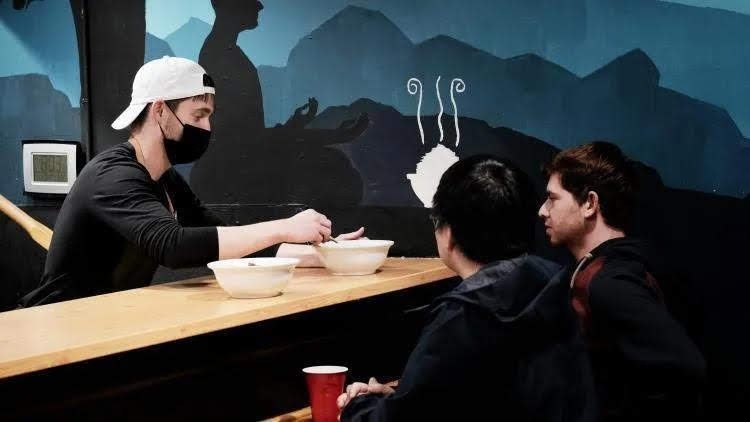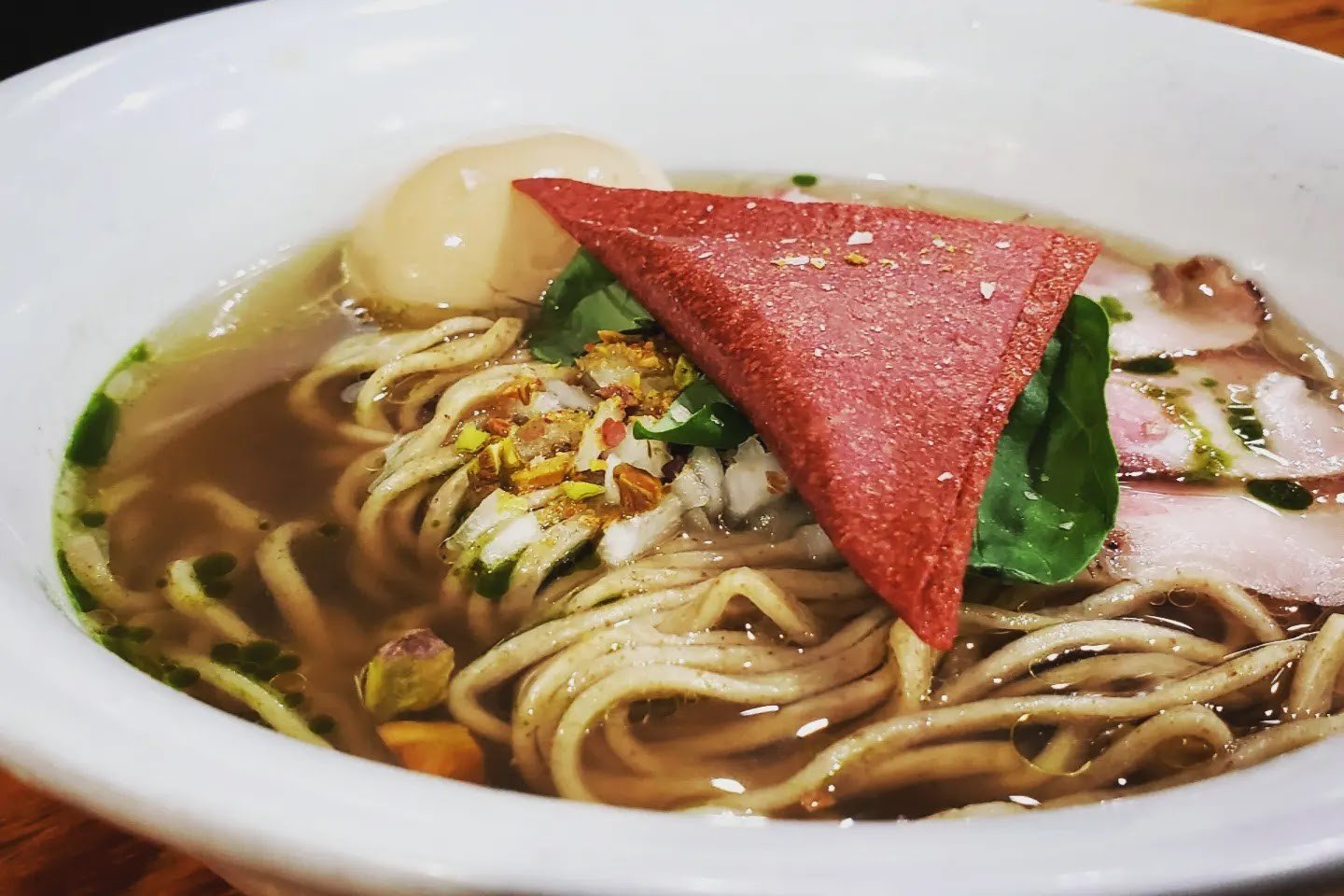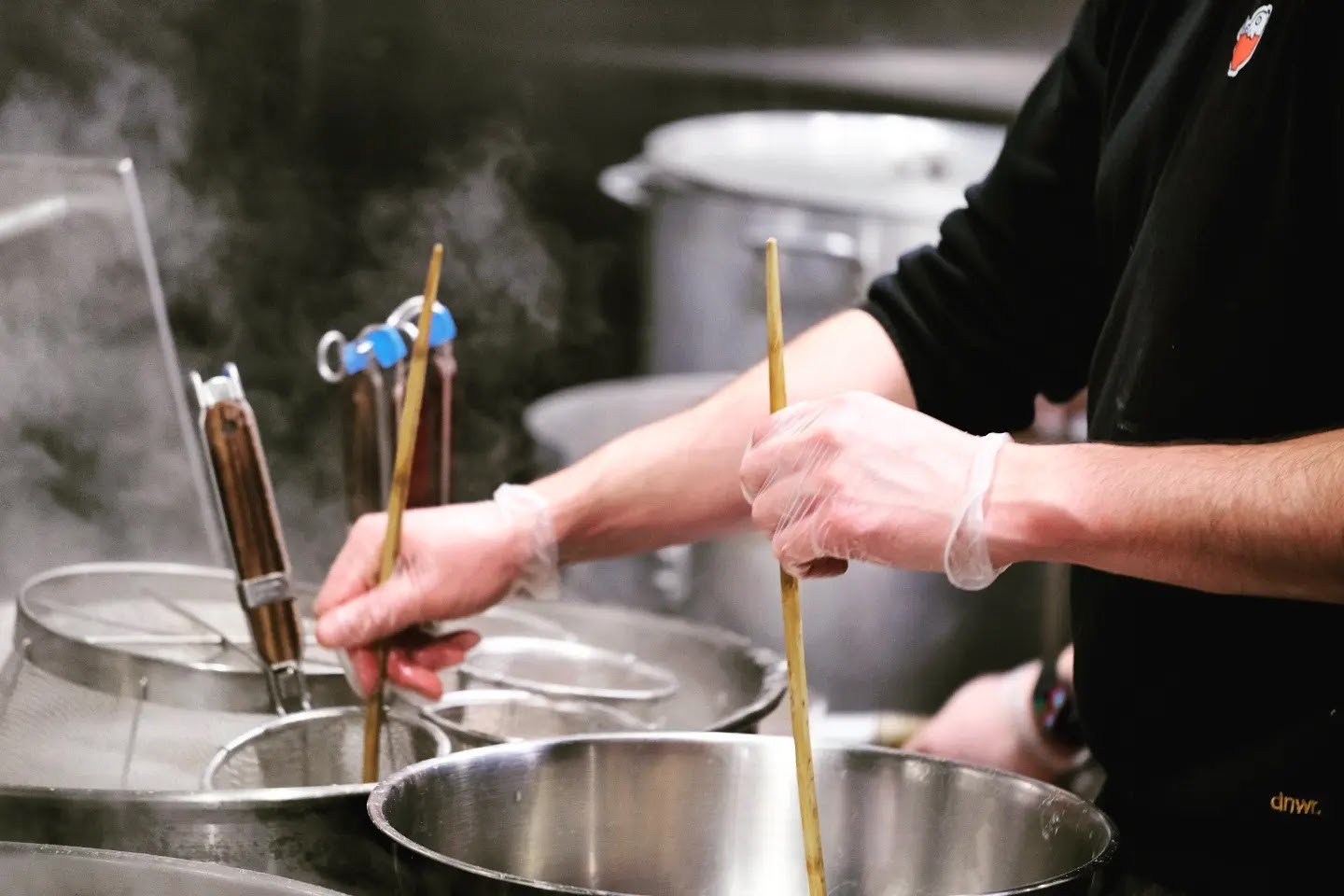6 Work Habits I learned at A Ramen SHOP
I'm product marketing lead at Meta. But for a few days this April, I worked at a ramen shop.
I knew that working at a(nother) ramen shop would be interesting, but I didn't realize that, in just 5 short days, I'd walk away with work habits that would benefit my actual career.
Before I get into things, it’s important to note that I wasn’t at any old ramen shop. I was at Yume Wo Katare.
More than just a restaurant, Yume Wo Katare means share your dream in Japanese. That's because Yume Wo Katare describes themselves as a dream workshop rather than a ramen shop. Their primary goal is not to serve ramen but to attract ramen-lovers to share aloud their personal ambitions after they finish their meal. Here's what I mean. They're aiming for 40,000 dreams shared this year.
With that said, let’s walk through the work habits I learned at Yume Wo Katare so you can benefit from them, too.
1. Broadcast your goals.
Each day at Yume Wo Katare began with chorei – a 15 minute standup where team members gathered in a circle to share their goals for the day. Goals shared were small (smile more under my mask) or large (help 100 people share their dreams), personal (apply for new jobs after work) or collaborative (help Preston make noodles).
In creating a forum for team members to set their own goals, chorei established structured autonomy at a scale that resonated with each participant. By doing so in a manner where team members broadcast those goals aloud, chorei also invited team members to help one another. It was common for one team member to define their daily success through the achievements of coworkers.
Broadcasting goals also served as a peer-reviewed sanity-check. Is the goal both ambitious and achievable? At one point, the head chef questioned my goals when he thought my plan for the week was too easy.
Each shift ended with shurei, a reflection of the day and goals. In this way, team members were held accountable — even if only through the voicing of their own progress. Impromptu debriefs on unmet goals also provided real-time feedback, and efforts were celebrated regardless of outcome.
Reflecting on my professional life, I've always set goals — but chorei and shurei were different. At work, I rarely set daily personal goals, so small wins often get lost among the ambitious ones. Similarly, I rarely share my goals (especially short-term ones) with peers, so I don't give my peers the opportunity to help with or challenge those goals. I also don't receive nearly enough feedback while I'm in pursuit.
Yume Wo Katare showed me how team-wide transparency around goals can amplify the growth mindset of a team. Big goals are important, but small ones (whether personal or just smaller in scope) are important, too — especially if you want to accelerate the speed of progress.
2. Embrace constraints.
I found myself at Yume Wo Katare because I was doing a ramen pop-up. The head chef set the 2022 goal of showcasing one home chef per month, and I was the lucky subject of his April event.
When making ramen at home, I operate without regard for constraints. I'm not trying to make a profit, so expensive ingredients, labor-intensive techniques, and inefficient yields are of no concern. I always considered this ramen without constraints mindset to be a competitive advantage that real ramen shops could never embrace. But at Yume Wo Katare, I learned how embracing constraints can be even more effective.
The first area in which Yume Wo Katare embraces constraints is their creative process.
Yume Wo Katare serves one dish (Jiro-style ramen) with two options (two pieces of pork or five). Not a lot of room for creativity, right? I thought so, too! Then I joined the team for their late-night creative sprints.
After service, members of Yume Wo Katare are invited to produce non-ramen dishes with Yume Wo Katare's signature pork shoulder chashu. Yume Bahn Mi, Yume Dough Katare (pizza), etc. These dishes sound (and were) wildly unhealthy, but the results were astounding and objectively creative. No pizzaiola would think to smoke pork chashu for her pizza! Yet the pie was the best I've had in some time. When we operate at the brink of a creative constraint, we're motivated to discover new ideas in familiar places — to draw from wells that that would otherwise appear empty.
The second area in which Yume Wo Katare embraces constraints is with time management.
Occasionally, Yume Wo Katare team members would set a timer before executing an arduous task. Finish tying this chashu in 4 minutes! The team would time-box activities activities even when there's nothing important to do on the other side of the timer. By creating urgency through an artificial time constraint, team members learn to execute routine tasks more efficiently, thus preparing them for when realized constraints (such as a late delivery) actually arise.
Yume Wo Katare taught me that constraints can be leveraged to spur creativity, make progress before its critical, and prioritize what's important. In the future, I plan to construct constraints to assist my brainstorming process (e.g. imagine a chat feature without a send button!) and will aggressively time-box busywork regardless of how long I have until my next meeting.
3. Treasure feedback.
Ya, ya — you think of feedback as a gift. But what kind of gift? Before Yume Wo Katare, I would have ranked the gift of feedback somewhere between ugly Christmas socks from my Aunt and an ADA-approved toothbrush for Halloween. "Thanks?"
The head chef of Yume Wo Katare is pumped about feedback. It energizes him. I'm talking a gift ranking somewhere between a winning lottery ticket and NINTENDO 64 FOR CHRISTMAS IN 1998. His outward willingness to act on feedback from customers and staff not only improves the quality of his product but also encourages greater transparency among team members. It also positions him as vulnerable in a way that makes him a more approachable leader.
For example, each day of my time at Yume Wo Katare, the head chef asked for the staff's perspective on the ramen. Taking the lead of others, I was open about what I liked and didn't like. On the last day, the chef served me ramen custom-built to my preferences. It was not only the best bowl I've had at Yume Wo Katare but it also changed how I think about their ramen overall.
At work, I'll continue to ask for feedback, but moving forward, I plan to close the loop. I'll tell the feedback-givers what I'll act on in hopes of spurring similar feedback in the future. I'll thank those feedback-givers outwardly to promote a more progress-driven culture.
4. Prioritize reflection.
Far too often, I deprioritize strategic and thoughtful activities in favor of work that is seemingly more pressing: the one-off questions from colleagues, the meeting at an odd hour, the status update. The deferred work is still important, so I find myself working in my personal time to make up for it.
At Yume Wo Katare, the head chef builds his schedule around lengthy, non-negotiable breaks where he brainstorms on process improvements and maps out the remainder of his shift. He literally lies on a hammock in the noodle room at what I assumed would be a critical time of day! These moments of reflection are not treated as nice-to-haves; they are sacred components of his work, clear line items on his to-do list.
Inviting me to try the same, the head chef had me take a timed, two-minute cold shower moments before we opened the doors to guests for my pop-up. To my surprise, this frigid exercise provided me with mental clarity that elevated my performance in the hours that followed.
At the workplace, I plan to adjust how I protect time for introspection and longer-term thinking. Time for reflection is important, and we should feel empowered to let this time dictate the constraints of other activities in the day — not the other way around. Moving forward, you'll see structured reflection as time blocks on my calendar and as line items in my goals for the half.
5. Aim higher.
Before I spent five days at Yume Wo Katare, I assumed that the "dream workshop" emphasis was largely a gimmick. There's no way that dream-sharing could be a company's core goal! But over the course of the week, I saw how Yume Wo Katare's atypical company focus was not only a driving force behind day-to-day decisions but also a defining reason why they make such great ramen.
By living and breathing their selfless goal, Yume Wo Katare attracts highly-qualified individuals who are passionate about the cause. In fact, on any given day, the shop has volunteers working grueling hours for free! These volunteers extract genuine value from doing so, and their thoughtful efforts contribute to a better dining experience and a tastier bowl of ramen.
When a noble cause motivates our work, we're inspired to produce better secondary and practical outcomes, too. At Meta, that can mean motivating your work on ad products through the stories of small businesses who grow, hire, and achieve their missions. We emphasize such stories in All Hands presentations, but how often do we track them via metrics? Just as Yume Wo Katare set a 40,000 dream goal for 2022, I'm inspired to set motivational tracking goals with the products I build.
6. Share your dream.
On a December 2016 visit to Yume Wo Katare, the dream I shared was to make my own ramen recipe. I started working on my recipe a few days later. Now 6 years later, I not only completed that dream but also served it at the same restaurant!
Many factors contributed to my ability to achieve that goal, but simply dictating the goal aloud was certainly one of them. As you build your career, don't be afraid to share your dreams with others. And if you're not comfortable sharing that dream at the office, I can recommend a ramen shop in Cambridge for the job :-)





